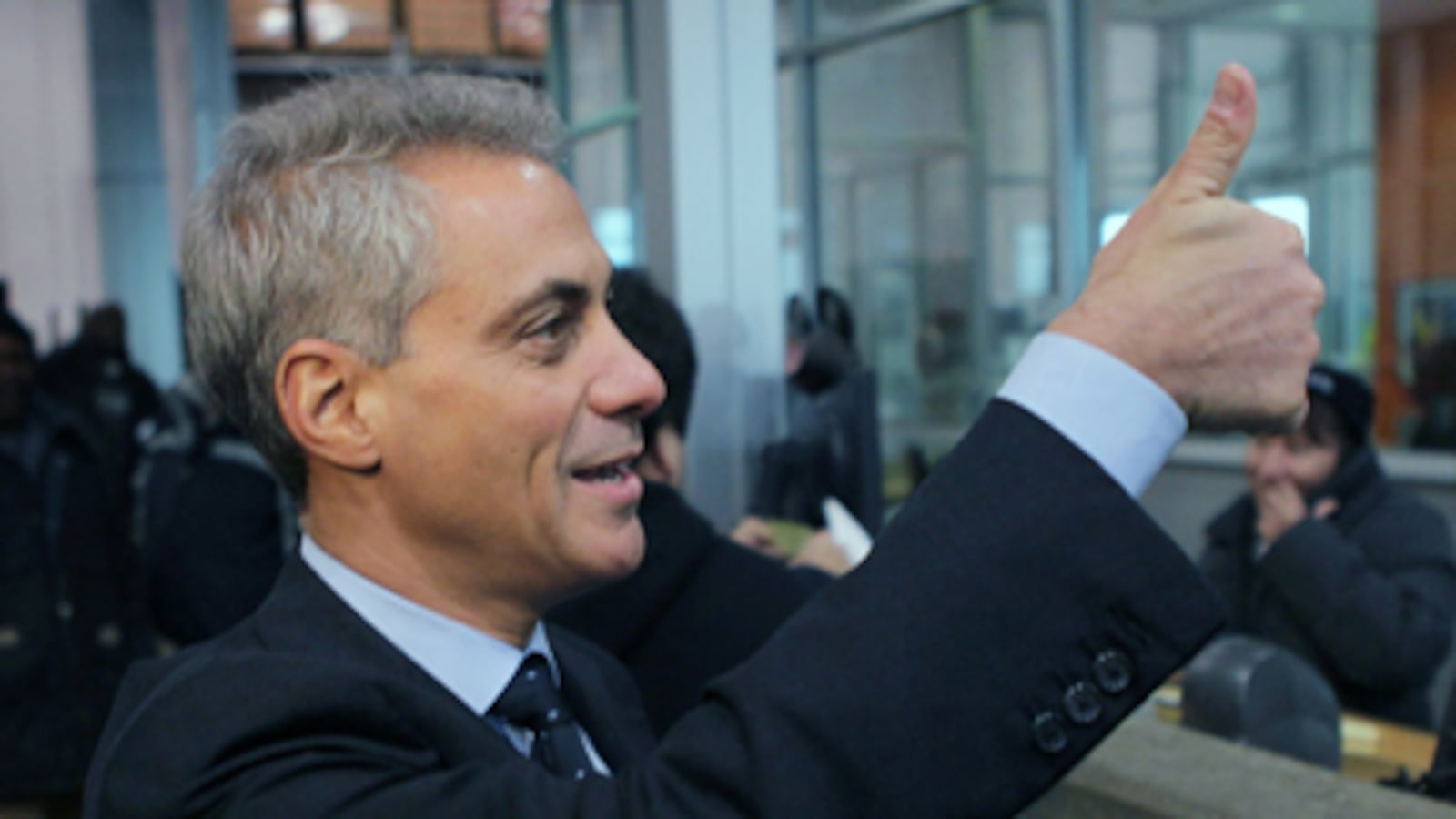Nothing can stop Rahm Emanuel from becoming the next mayor of Chicago, the conventional wisdom has it, now that the Illinois Supreme Court has sided with him on the question of his residency in the city.
A jubilant Emanuel was striding happily at a Loop El stop while glad-handing voters, and mentioning, by the way, that he had just gotten a phone call from President Obama. As for the court ruling, he proclaimed that mostly he was “relieved for the voters.”

But before Emanuel starts calling the shots at City Hall, it’s worth noting, there needs to be a vote, and maybe two of them, since a run-off is required if no candidate reaches 50 percent.
While this is surely Emanuel’s contest to lose, analysts say, he’ll still need to keep his ego and temper in check, at least for a while.
“The only thing I see tripping him up,” said Monroe Anderson, a former press secretary to the late Mayor Eugene Sawyer, “is saying something that offends” a large group of people.
He added, “I think he’s smarter than that.”
In the race to succeed Mayor Richard M. Daley, polls show Emanuel far ahead of former United States Senator Carol Moseley Braun; and Gery Chico, a former top aide to Daley who won plaudits for reforming the city’s schools. Miguel del Valle, the City Clerk, is trailing badly.
There is not much time for a blunder before the Feb. 22 contest. But if Emanuel falls short of 50 percent in the four-candidate field, he will need to stay on good behavior until a face-off in April. That can be a long stretch of patience for a man who does not like to pull punches.
But for all the stories of his foul language and hot temper, Emanuel has maintained a calm demeanor while being criticized by some as a carpetbagger, both from Washington, where he was the chief of staff for the White House, and from the leafy suburb of Wilmette, where he grew up.
The state Supreme Court, overturning an appellate ruling, found unanimously Thursday that Emanuel met the residency requirement.
Into the bargain, Emanuel has even managed to cultivate some “sympathy from people who think he has been treated unfairly,” according to Richard Simpson, a former alderman who is now a professor at the University of Illinois-Chicago.
“The only thing I see tripping him up,” said Monroe Anderson, a former press secretary to the late Mayor Eugene Sawyer, “is saying something that offends” a large group of people.
In a debate among the candidates on Thursday night, Emanuel did not appear to do anything to jeopardize his front-runner status.
Emanuel displayed “only brief, occasional flashes of arrogance,” said Don Rose, a longtime political strategist, and even managed “some attempts at compassion.”
On balance, in Rose’s view, “it was Rahm neutral—and that’s all he needs it to be.”
Emanuel’s opponents are calculating that they can somehow assemble a coalition to defeat him, drawing largely on votes among African-Americans and Latinos. Some old-guard white ward powers would like to see Emanuel toppled, too.
Ed Burke, a Southwest Side alderman who chairs the city’s powerful finance committee, has been a supporter of Chico. Among the old pols who can still turn out foot soldiers on Election Day, Burke would rank among the best.
But while his white constituents might back Chico, who is of Mexican, Greek and Lithuanian ancestry, it is doubtful that many would support Moseley Braun.
African-American voters, meanwhile, might be difficult to win for Chico.
“Given a choice between Chico and Emanuel,” said Rose, “black voters are going to go with Obama’s man.”
That would be Emanuel. Recent polls show that Emanuel even has a slight edge among black voters over Moseley Braun, who was the first African-American woman elected to the United States Senate.
To pull an upset, “there is going to have to be a very strong anti-Rahm movement,” said Anderson, “and there just doesn’t seem to be one on the horizon.”
Dirk Johnson is former Chicago bureau chief for Newsweek and The New York Times.






